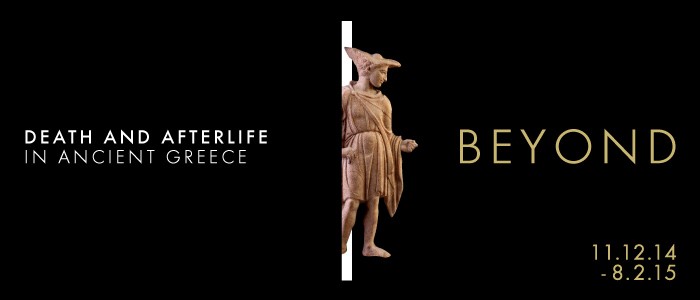The History of Art and Visual Culture Department (havc.ucsc.edu), at the University of California, Santa Cruz (UCSC) invites applications for the position of postdoctoral scholar – employee position in Mediterranean Studies predating the Early Modern Period. We seek a scholar who works on the visual production of Mediterranean societies beyond the traditional confines of art history and archeology, and studies the socio-cultural role of visual communication in areas such as the formation and impact of class, gender, sexuality, political or cultural affiliations, ritual, religion or ethnic identity. An interest in cross-cultural interactions and an interdisciplinary approach are highly desired. Some teaching experience at the university level is required. We are interested in candidates who can contribute to the diversity and excellence of our academic community through their research and teaching.
Under the mentorship of Maria Evangelatou, the finalist is expected to be active in research during this one-year term, and to interact with members of the UC Mediterranean Studies Research Project who work in our university and on other UC campuses. The successful applicant will also participate in teaching undergraduate classes in areas not currently offered in our curriculum, such as the civilizations of Bronze Age Aegean, Ancient Greece and Rome, Egypt, Phoenicia, the Persian Empire, Western medieval or Islamic cultures. The successful applicant will teach three consecutive five-unit courses in the undergraduate core curriculum as a lecturer. This competitive postdoctoral position emphasizes teaching responsibilities and provides the opportunity to enhance one’s experience in working with students from a wide range of social and cultural backgrounds. The scholar will hold two university appointments. The primary appointment will be as a postdoctoral scholar at 100%. When teaching, the postdoctoral scholar appointment will be reduced and a lecturer position will be added (lecturer appointment usually 37.5% for a five unit course). At no time will the appointment drop below 100%.
HAVC supports the investigation of art and visual culture across a wide variety of theoretical perspectives in the cultures of Africa, the Americas, Asia, Europe, the Mediterranean and the Pacific Islands. As part of a vibrant community of faculty and graduate students in the Arts, Humanities and Social Sciences, we encourage collaborative projects and foster innovative research. The successful applicant will have opportunities to share research interests and present work in progress in a number of contexts, including HAVC’s graduate program in visual studies.
UCSC is located among redwood forests and meadows overlooking Monterey Bay, along California’s Central Coast, in close proximity to Silicon Valley and the Bay Area. The campus currently operates on a schedule of three 11-week quarters per academic year.
RANK: Postdoctoral Scholar – Employee/Lecturer
SALARY: $42,840-$45,000, commensurate with qualifications and experience + $5,000 research account from the Arts Excellence Research Fund
BASIC QUALIFICATIONS: Ph.D. by July 1, 2015.
PREFERRED QUALIFICATIONS: University-level teaching experience.
POSITION AVAILABLE: July 1, 2015
TERM OF APPOINTMENT: One year. For appointments within the University of California, the total duration of an individual’s postdoctoral service may not exceed five years, including service at other institutions.
TO APPLY: Applications are accepted via the UCSC Academic Recruit online system, and must include 1) a letter of application outlining scholarly background as well as current and future research plans; 2) curriculum vitae; 3) a current publication or writing sample (chapter of dissertation if no publications); 4) descriptions or syllabi for three courses (one large lecture, one small lecture, one seminar); 5) three current confidential letters of recommendation.* Applicants are invited to submit a statement addressing their past and/or potential contributions to diversity through research, teaching and/or service. Documents/materials must be submitted as PDF files.
Apply at https://recruit.ucsc.edu/apply/JPF00244 Refer to Position #JPF00244-15T in all correspondence.
*All letters will be treated as confidential per University of California policy and California state law. For any reference letter provided via a third party (i.e., dossier service, career center), direct the author to UCSC’s confidentiality statement at http://apo.ucsc.edu/confstm.htm.
CLOSING DATE: Review of applications will begin on April 1, 2015 To ensure full consideration, applications should be complete by this date. The position will remain open until filled, but not later than 6/30/2016.
The University of California is an Equal Opportunity/Affirmative Action Employer. All qualified applicants will receive consideration for employment without regard to race, color, religion, sex, national origin, disability, age, or protected veteran status. UC Santa Cruz is committed to excellence through diversity and strives to establish a climate that welcomes, celebrates, and promotes respect for the contributions of all students and employees. Inquiries regarding the University’s equal employment opportunity policies may be directed to: Office for Diversity, Equity, and Inclusion at the University of California, Santa Cruz, CA 95064; (831) 459-2686.
Under Federal law, the University of California may employ only individuals who are legally able to work in the United States as established by providing documents as specified in the Immigration Reform and Control Act of 1986. Certain UCSC positions funded by federal contracts or sub-contracts require the selected candidate to pass an E-Verify check. More information is available here or from the Academic Personnel Office (APO) at (831) 459-4300.
UCSC is a smoke & tobacco-free campus.
If you need accommodation due to a disability, please contact the Academic Personnel Office at apo@ucsc.edu (831) 459-4300.

